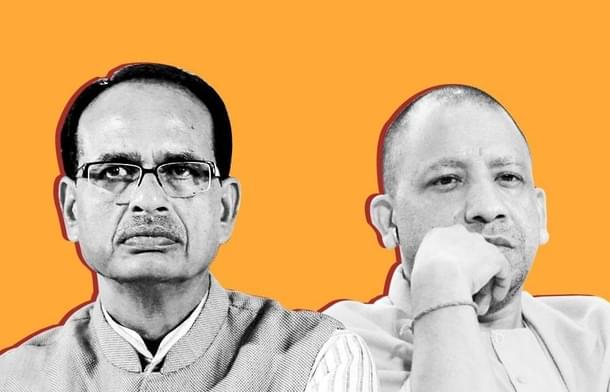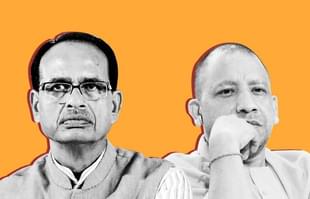Politics
Why The Proposed ‘Love Jihad’ Law By UP And MP Will Be A Dud On Arrival
Arihant Pawariya
Nov 23, 2020, 01:48 PM | Updated 01:48 PM IST
Save & read from anywhere!
Bookmark stories for easy access on any device or the Swarajya app.


In the last few weeks, as many as five state governments — Uttar Pradesh, Madhya Pradesh, Haryana, Karnataka and Assam — have stated their intention to bring a law to check the abuse in marriages between Muslim men and non-Muslim women, what is often referred to as ‘Love Jihad’ by Hindu and Christian activists who allege that Muslim men chase non-Muslim women for marriage in order to convert them to Islam.
So far, details of the law proposed by the Uttar Pradesh and Madhya Pradesh governments have leaked in the media and these give a good idea of the direction in which the BJP is thinking.
These leaks suggest that the BJP is not bringing in a law to deal with ‘Love Jihad’ per se but an overarching law that will prohibit conversions via use of force, misrepresentation, undue influence, coercion, inducement or by any other fraudulent means including for the sole purpose of marriage.
The last part is aimed at solving the rising problem of misuse in inter-faith marriages.
The legislation in both the states are likely to be termed as “Freedom of Religion Act‘.
It seems that this is inspired by the law implemented by Himachal Pradesh currently, which bears the exact same name.
The BJP government in Himachal Pradesh had passed the Freedom Of Religion Act, 2019 last year. It is one of the seven states in the country which have enacted such a legislation.
Others who have tread this path are Odisha, Madhya Pradesh, Gujarat, Uttarakhand, Chhattisgarh and Jharkhand.
The new Act being proposed in Madhya Pradesh is likely to be an amendment to its already existing anti-conversion law.
In Himachal too, the government had amended the 2006 Act to keep up with the times. The amendments increased the punishments, criminalised marriages solemnised for the sole purpose of conversion and made provisions to hold responsible those organisations involved in forced conversions.
Barring a few minor changes, there is no reason to doubt that the Madhya Pradesh and Uttar Pradesh Acts will be any different from the Himachal Pradesh one.
And if that’s indeed the case, then the proposed clauses in the Act are clearly not enough to put a stop to misuse in marriages, specifically those between Muslim men and non-Muslim women.
The reason for cherry-picking this one marriage scenario is simple: rights of women marrying under the Hindu Marriage Act or the Special Marriage Act (SMA) vary greatly from those who wed as per Sharia or the Muslim Personal Law and any non-Muslim woman marrying a Muslim man instantly loses all her rights as she enters from a more-rights legal regime to one with few rights.
The problem with the Himachal Pradesh’s Act is that merely declaring marriages conducted solely for conversion as void doesn't do much for the women victims.
Breaking up a marriage is not as easy as to stop buying from a shopkeeper who fleeces you.
Separation imposes very high costs on all involved. Hence, the law must come into the picture before the marriage takes place, not after.
The real issue is not that marriages are done for the sole purpose of conversion, but that conversion is done for the sole purpose of marriage.
Outlawing the latter would mean that no non-Muslim woman would ever have to change her religion to marry a Muslim man i.e. take the Sharia route, thus losing considerable number of her rights regarding inheritance, property, custody of children, alimony, et cetera.
The thing that needs to be considered here is simple: the state cannot hope to be a saviour for women hopelessly in love so much so that they don’t think twice before converting just to marry their partner.
If they aren’t listening to their own families, they aren’t likely to listen to the State as well.
However, what the State can and should try to do is protect the rights of women so that they have some legal provisions to fall back on if they later realise they married the wrong person.
So, the bare minimum that any Act which seeks to genuinely curb the so-called Love Jihad problem should do is ban all marriages between a Muslim male and non-Muslim female if they are done as per Sharia.
Only route should be the Special Marriage Act for inter-faith marriages.
If the government mandates strict punishment for the groom and the Maulvis who solemnise inter-faith marriages under Sharia after converting the girl, then the problem can be tackled to a great extent, as this will put fear in the parties whose motivations aren’t bona fide.
Under the Himachal Pradesh Act, the State will have to establish in a court of law if the intention of the person was to really convert the woman. This will not be easy for the prosecution and we may not see any convictions.
To make the law stricter, a provision can be added under SMA for inter-religious marriages where the husband or his family can be prosecuted if they subject the woman to harassment or put pressure on her to convert.
Minor girls are the biggest victims of ‘love jihad’.
Every now and then, we come across cases where minor girls are converted first and then married under Sharia (where legal age of marriage is lower).
If the government bans Sharia marriages when a non-Muslim woman is involved, this misuse will also stop. Anyone who indulges in entrapping minors to marry them can be prosecuted for rape or tried under Acts like The Protection of Children from Sexual Offences (POCSO) Act.
One hopes that the State governments, which genuinely want to stop the abuse in inter-faith marriages, will think more deeply on this issue and not pass a dud law in haste.
Arihant Pawariya is Senior Editor, Swarajya.




